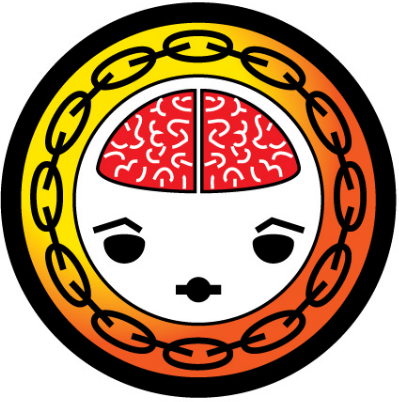I closed the door of my hotel room and grimaced at the overflowing trash can. Heaped high with plastic, it violated my principles as an environmentalist. Ironically in the city of San Francisco, which alleges allegiance to Corporate Social Responsibility, I had no option.
As a frequent traveler, sometimes the road stories are ones we’d like to forget. This was a bad week. The flight into San Francisco on American was six hours late, arriving at 7:00 a.m. (EDT). (I had scheduled the last flight out of Philadelphia on a Sunday night to spend an afternoon with my grandchildren.) I landed seven hours later than planned, and quickly found a bed.
Tired, I spent the day in San Jose. Silicon Valley is a magical place. Surreal technology abounds. On a visit with Jabil, I had a great discussion on the paradigm shifts required by supply chain leaders to drive improvements through robotics and 3D printing. At a visit to Samini, I witnessed a real-time visibility system for multiple tiers of the supply chain. During the afternoon I took a walk and was overcome by the pollen. Within an hour I was very ill. I don’t know if it was the eucalyptus, or the gardenias, but I was down for the count. A sinus infection sounds very benign but, on this lovely day in San Jose, I was struggling.
On my taxi ride into the inner-city of San Francisco, I relished the thought of a comfortable bed and room service in a four-star hotel. As I checked in to the Marriott Marquis, I had dreams of a warm bath and a bowl of chicken soup delivered to my room. This was not to be. This four-star Marriott no longer offers room service. Based on a research study, the management team decided that Marriott would no longer have room service. Instead, the format would be “grab and go.” Mediocre food served in plastic containers. Alternatively, I could order food through a local service–Grub Hub or Caviar–which is also served in plastic containers. My dream of a bowl of a chicken soup remained a dream. Each day, through fever and chills, I would walk to my computer and try to work from my room. On each sign-on, I rated the hotel. My answer was 0 on a scale of 10, and I told the story of my elusive bowl of soup. Each day I also wrote a personal letter to Marriott management on their corporate site telling the story of a Marriott Platinum member, sick on the 20th floor of the Marriott Marquis, trying to get a bowl of chicken soup. Later the same day the hotel staff would call and apologize and explain that the decision to not have room service was a corporate mandate based on a survey. They would hang their heads, state that they did not agree with the policy and explain that it was not their decision. Their hands were tied. So each day, I would bundle myself in clothes between fever and naps to order at the grab and go cantina and carry a paper bag with bad food in plastic containers back to the room. A sign on the desk of room 2033 stated that the City of San Francisco would no longer let the hotel place water in the room because of the waste of plastic bottles, yet, day after day, my only option during my recovery was to buy cold food in plastic containers and let it pile up in the trash can.
To pass the time, I watched the news. I am normally too busy to watch the news, but I needed something to occupy my mind. As I shifted from channel to channel I shook my head. Today on the major channels we have very little news. I miss the days of Walter Cronkite reporting the news. Instead, we have talking heads sharing opinions. I loved the news. I hate the talking heads.

On Friday American canceled my return flight. Stuck without a flight on Memorial Day weekend, I succumbed to a two-hour call with the American Platinum frequent-flyers desk to work out an alternate plan. Instead of the direct from San Francisco to Philadelphia, I was to fly on United to Newark and take a train from Newark to Philadelphia. After 45 minutes of airlines speaking to airlines, I supposedly had a ticket. American gave me a United confirmation number, and I thought it was set. However, when I got to the airport, this was not so. While the American and United systems were integrated, there was no interoperability. What do I mean? The file transfer to connect the tickets was batch and out of sync with the travel. As I walked back and forth between terminals carrying paper between American and United, I was fortunate to meet Randy Hom at the United counter (shown in the photo). He was my fourth agent in the premium line, and he worked out the issue of the ticket by holding a phone on each ear (one for American and one for United) while working on my ticket with his mobile phone and his computer. An hour later I was off to my gate with a valid ticket.
Why do I tell you this story? While you may feel sympathy for a sick traveler, for me there was a deeper set of messages:
- Companies Can Justify Anything Through Research.
- Reality Easily Gets Distorted by Talking Heads.
- Integration Does Not Mean Interoperability.
- There Is No Substitute for Knowing the Customer.
- Good People Can Make a Difference in Outcomes.
At the desk in my room, despite being sick, I had some breakthroughs. Here are some insights from my work week:
- Too Few Understand Demand Planning. Last week the team at Supply Chain Insights completed delivering the first module of the cross-company cohort of the seven online learning programs. Teaching these is fun! The first session had 60 participants across Europe, Asia and Americas. The content focused on the end-to-end supply chain. As I facilitated the class, and discussed the findings , the theme of data sharing and demand management was prevalent. Most companies have applied the regional practices of demand management to global teams. The problem is that the global supply chain is more complex requiring a different set of processes. Few companies were using market signals, and no company focuses on forecast value add (FVA) work. As we talked about the end-to-end supply chain, many wanted to use their customer’s forecast as a better demand signal. Sadly, forecast sharing across companies is usually a waste of time. Why? The forecasts are just not accurate enough. Let me give you an example. Last week, I worked with a company that took 40 forecasts verbatim from their clients as part of an end-to-end strategy and used them to drive ‘improvements’ in demand. The problem was that the forecasts had high error and bias, and the company did not test them before use resulting in exacerbating the error and bias. The lesson? Test and verify. Most companies lag in their understandings of how to improve the forecast and better use demand data. The other lesson: Asian teams are working very hard with bad forecasts.
- Together, We Need to Manage Hype Cycles. Mid-week I facilitated a webinar on blockchain. We had over 750 signups for the session. Blockchain is a new technology with great interest. Why? It is promising, and new. As the market fades on the implementation of Enterprise Resource Planning (ERP) and Advanced Planning Systems (APS), consultants are seeking the new and promising “next thing.” My fear is that the technology will be over-hyped, and as a result it will underdeliver against the promise. My goal is to disintermediate banking and dramatically change the supply chain. While finance is the art of money changing hands until there is nothing left, supply chain management is about creating value. My goal is to improve value in value chains for supply chain leaders everywhere. There is great interest, but together we need to manage the expectations and define the value proposition. This is the work we are doing in the Network of Networks group.
- Where Will Innovation Come From? In the past I have given Infosys and Jabil a hard time for focusing on the sale of a software product. However, as I attended the Confluence conference last week with Infosys, and spoke to Jabil about their new announcement on supply chain visibility, I softened. If the existing software vendors are slow to innovate, these alternatives do give business buyers a chance to innovate. And there is less impact if the purchase is a tactical purchase. I am happy to report that both companies are making progress on their solutions.
- Too Many Talking Heads. Too Few Facts. During my illness, the time in the room allowed me to catch up on the news from multiple conferences. Like the news, opinionated talking heads dominate today’s supply chain conferences. Bad research distorts reality. I want to change this. My goal is to provide open research to drive fact-based debates. Today, event companies (strangely most operate out of the UK) provide the platforms for talking heads. I grow weary of this type of banter as it reminds me of the news channels.
- Much Ado About Nothing. The 2017 Gartner Top 25 beauty contest is over. The winners’ pictures and hoopla is dissipating, but sadly, as we will report in our Supply Chains to Admire research next week, very few of the companies in the Gartner Top 25 are driving balance sheet performance better than their peer group on a balanced portfolio of metrics. (We will share this data in a series of webinars and at the Supply Chain Insights Global Summit on September 5-8. We hope to see you there.)
Long story short, I made it home. Being sick in a hotel room is no fun. On Friday, shortly before midnight, a frustrating week for a sick gal came to a close. I did get a bowl of soup on the last day at the hotel, and the hardworking United agent was able to fight the system to get me home. My takeaway? Good people make a difference in outcomes. We must stay focused on outcomes and humbly serve our constituents.







